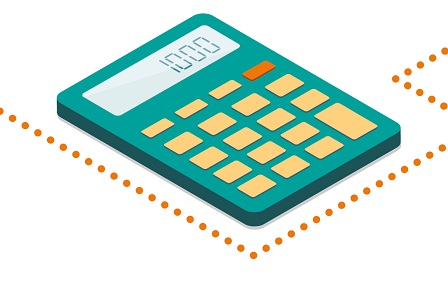
How much do you need to save to be able to retire? Eight in ten are underestimating the sum
Do you know how much you need to save to comfortably retire? If you’re saving into a pension with no goal in mind, it can be difficult to judge if you’re on track.
As retirement looms, it becomes even more important to get to grips with the figures and understand the level of income your pension will provide once you’ve given up work.
Our research indicates that eight in ten are potentially underestimating how much they need to save ahead of retirement. Failing to save enough and being under-prepared for retirement could leave them facing financial hardship later in life.
To achieve an annual income of £27,000 in retirement, research from Aegon suggests you’ll need to have built up provisions totalling more than £300,000. With 30% of workers hoping to maintain their current lifestyle and a further 31% wanting to achieve a better lifestyle, an income that affords some luxuries is likely to be a goal for many. However, estimates of the savings needed suggest many retirees will experience a shortfall.
When asked the total amount needed to retire:
- 34% believe they’ll need less than £50,000;
- 17% think £50,000-£99,999 will be enough;
- 20% said £100,000-£200,000; and
- 8% stated between £200,001 and £300,000.
Of course, the amount you need to fund retirement will depend on what you want to achieve. If you’re planning to scale back spending, you’ll obviously need less. In contrast, if you plan to indulge in holidays and hobbies, you may need to increase the amount you’re saving.
There are lots of general rules of thumb used to give you an idea of how much you’ll need to fund your retirement. One that’s commonly cited is two-thirds of your annual salary to maintain your current lifestyle. However, retirement has become a lot more flexible in recent years. Changes to working patterns, retirement dates, and the way that you can access your pension means there’s no one-size-fits-all solution.
As a result, we believe taking a tailored approach is essential to help you feel confident in the retirement provisions you’re building up.
How to calculate how much you need for retirement
With the above in mind, how do you go about calculating how much you need to save over your working life? These five key areas can help assess how much you need to put away to achieve the retirement lifestyle you want.
- Life expectancy and health: before diving into the figures, you need to consider how long your pension will support you for, as well as your health. With life expectancy rising, a healthy individual should plan for a retirement that lasts until their nineties. It’s not uncommon for retirement today to last 30 or even 40 years. It’s a consideration that’s important for ensuring you don’t run out of money once you’ve given up work.
With people living longer, it’s inevitable that more of us will need care in some form in the future. If your health isn’t something you’ve considered, it could mean your finances come under pressure in your later years.
- Guaranteed income: when planning retirement finances, guaranteed income should provide you with a foundation to build on. For many, this starts with the state pension. Assuming you have a full National Insurance record, the state pension pays £164.34 per week. While this falls significantly below the recommended annual income for a pensioner, it does provide you with a base amount to start your calculations.
You may also be a member of a defined benefit pension scheme, also known as a final salary pension, through your employer. If this is the case, you can contact the scheme directly to understand the level of income you’ll receive from it and when the retirement age is.
- Retirement plans: retirement no longer follows a set path for everyone. In fact, more people are choosing to work past state pension age in a variety of roles. Whether you want to continue building your current career or opt for a part-time position, it can help stretch your retirement savings further. If you hope to continue earning an income during a portion of your retirement, your target amount may be smaller.
- Annual expenditure: with an idea of how long your retirement savings need to last for, you can start calculating how much you need each year. This will be dependent on the lifestyle you want to achieve throughout your retirement.
Starting with essential costs is often the simplest way to build up a picture of the income needed. Many retirees find their essential household expenditure goes down, as you may have paid off your mortgage and will no longer be commuting to work. From this figure, you can start to add on the cost of the luxuries you’re looking forward to enjoying in retirement.
- One-off outgoings: depending on your retirement plans, you may also want to withdraw sums of money for one-off purchases. This may, for example, be used to pay the remainder of your mortgage, fund a holiday or cover the cost of home repairs.
Pension freedoms mean it’s usually possible to withdraw the first 25% of your pension tax-free from the age of 55. It’s an attractive option that can help you fund singular expenses. However, this will obviously deplete your retirement provisions and may change your annual expenses. As a result, it’s important to factor them in.
Please note: A pension is a long-term investment. The fund value may fluctuate and can go down, which would have an impact on the level of pension benefits available. Your pension income could also be affected by the interest rates at the time you take your benefits.
Accessing pension benefits early may impact on levels of retirement income and your entitlement to certain means tested benefits and is not suitable for everyone. You should seek advice to understand your options at retirement.
Please note: A pension is a long-term investment. The fund value may fluctuate and can go down, which would have an impact on the level of pension benefits available. Your pension income could also be affected by the interest rates at the time you take your benefits. The tax implications of pension withdrawals will be based on your individual circumstances, tax legislation and regulation which is subject to change in the future.
Accessing pension benefits early may impact on levels of retirement income and your entitlement to certain means tested benefits and is not suitable for everyone. You should seek advice to understand your options at retirement.
Foster Denovo Limited is authorised and regulated by the Financial Conduct Authority
All statistics quoted have been taken from our whitepaper, ‘Planning for a brighter tomorrow: the state of the nation’s retirement finances.’
To download our whitepaper, click here.

 0330 332 7866
0330 332 7866 advise-me@fosterdenovo.com
advise-me@fosterdenovo.com Search
Search






